all of the writing projects i killed this summer
And not in the good way.
In the past three months, I’ve killed five major projects—two novels, one audiobook, one TV pilot, and one feature (movie). (The feature was the audiobook repurposed.) That is a high kill rate for me. I don’t usually get this far—fifty pages of a novel! fifty-one pages of a screenplay! a complete draft of a pilot!—only to abandon ship. Killing your own work is very different from someone else killing it for you. (I’ve had that experience too. Zero stars. Do not recommend.)
Here’s why I killed each one.



Project #1: THE WICKED TEST
When eighteen-year-old Ruby Rowe fails the government’s infallible violent crime prediction test, she is exiled to a brutal quarantine zone, where staying alive might require proving the projection right.
This potential Book 5 idea first came to me in June 2023, but I didn’t start working on it in earnest until February 2025. Why? Because it wasn’t a thriller. It was speculative fiction (think Lord of the Flies x Minority Report), and I was still under contract for two thrillers. Once I was free, though, I went all in. I wrote the first fifty pages, a 22-slide world-and-character deck, and a 14-page single-spaced synopsis. (I forgot synopses are supposed to be, what, 2-5 pages? My fastidiousness probably didn’t help my case.) My agent loved it. My editors… shrugged. At breakfast with one of them, she had the gall to ask what I wanted my readers to take away from this book!
[Maybe some writers know a book’s purpose from day one, but if you asked me, the answer is typically closer to, “I dunno, I thought it’d be fun to pretend to be a cult leader for a year.” See: my second book.]
Jokes aside, we talked about where I see my non-thriller books landing on bookstore shelves. Do I want them to be book clubby and character-driven (call it “sci-fi lite” since most readers don’t use “speculative fiction”), or proper sci-fi—technology-heavy and worldbuilding-forward? Do I want to write Lord of the Flies or Minority Report? For me, the answer is the former. I want my books alongside The Handmaid’s Tale, The Power, Station Eleven, The School for Good Mothers, The Measure. Not The Jetsons. My speculative ideas gravitate toward society-as-we-know-it with one big difference, rarely a technological one. THE WICKED TEST was too focused on the tech—the test itself—which fascinated me, but the characters didn’t. And if I wasn’t excited about the characters, no one else would be either. My editor never told me to scrap the project, but I realized it wasn’t aligned with the lane change I’m trying to make career-wise.
THE WICKED TEST was a strategic kill. THE CONSENSUS? That one fell victim to something more fickle: my wandering eye.
Project #2: THE CONSENSUS
When a woman arrives on a utopian island where virtue is ranked and exile is a monthly ritual, she sets off a reckoning among five residents—each shaped by the same long-buried tragedy, and each afraid of who the ritual will come for next.
This idea was born in THE WICKED TEST’s ashes. Thankfully, I only invested three weeks into this potential Book 5 project. In that time, I generated a 108-page journal, developed five POV characters and a fictional setting, drafted jacket copy, and sketched a loose plot. I still have a lot of heart for the story, but it wasn’t high-concept.1 That worried me a little, though not enough to quit. The real reason I shelved it? On a road trip, while listening to a podcast, I came up with a new Book 5 idea—one that instantly pushed this one out of my head. Two months later, I still love that idea just as much. A good sign it’s a keeper.
Sometimes it’s not the idea that fails you, but the fit with the people you’re making it for. Which brings us to GRANNY DEAREST.
Project #3: GRANNY DEAREST
A wealthy matriarch begins to doubt her grip on reality as her teenage granddaughter wages a slow, devious war to take everything she has.
An editor at a well-known audiobook company reached out to my agent earlier this year, inviting me to write a thriller novella2 for them. Always game to try new storytelling forms, I said yes and started pitching. Unlike with my novels—which begin with few parameters beyond genre—the producer had clear boundaries: a domestic thriller featuring rich people behaving badly, a luxury setting, and a relatable outsider protagonist. Well, dear reader, you know I specialize in outsiders. Relatable? Not so much. And I haven’t written a straight-up domestic thriller since Darling Rose Gold. Still, I did my best to add a Wrobel (read: weird) touch to their request.
Over three months, we went back and forth on a handful of ideas and synopses. In the end, what they liked most was what I found too pedestrian. And what I liked most, they thought too off-the-wall. If you don’t want my evil grandmother and her hallucinated little-girl companions, Tic, Tac, and Toe,3 then she’s not for you, you know? They’re a package deal.
Of course, once I’d buried GRANNY DEAREST the novella, I couldn’t resist trying to resurrect her on screen. Enter GRANNY DEAREST 2.0.
Project #4: GRANNY DEAREST 2.0
As I’ve mentioned (probably too many times) in this here newsletter, I have screenwriting ambitions. So I decided to twist this grandmother-granddaughter cat-and-mouse story into a horror movie. I was thinking along the lines of The Father x The Substance x The Visit, the last of which I still haven’t seen but seems relevant.
I had my characters. I wrote a beat sheet. Then an outline. About 45 pages into the script (of roughly 90-110), I started losing steam. By page 51, my enthusiasm had curdled. I didn’t know what I wanted the movie to say. What argument was I trying to make? What did I want the viewer to walk away with? I had no answers. This was more than the first draft blues4—I couldn’t identify anything special about my story. It felt unoriginal. Mediocre.
If I ever pick it back up, I’d start with Charles Bonnet Syndrome and the three little girls (see footnote below), because I’m forever fascinated by stories that swing between sanity and insanity. I also suspect this project works better on the page than on screen. In a novel, we can live inside the protagonist’s head, unsure if what she’s seeing is real.
Although I only dedicated three weeks to GD 2.0 (same as THE CONSENSUS), shelving it stung more. Some of that has to do with tangibility: fifty-one screenplay pages felt like a half-built house staring me down, making the sunk-cost fallacy harder to ignore. And some of it has to do with ambition; I *really* want to make strides as a screenwriter. (More on my Q4 plans in October’s newsletter.) Shelving this project felt like shelving progress toward that identity, whereas my identity as a novelist is an established strength. Theoretically. Remind me I said that when I’m writing my next book.
If GRANNY DEAREST 2.0 died of directionlessness, THE HATCHERY met a different end: death by unoriginality.
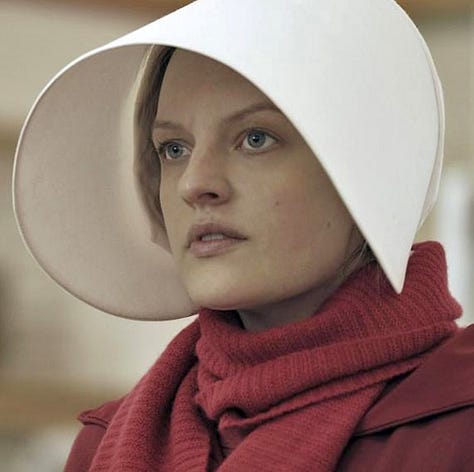
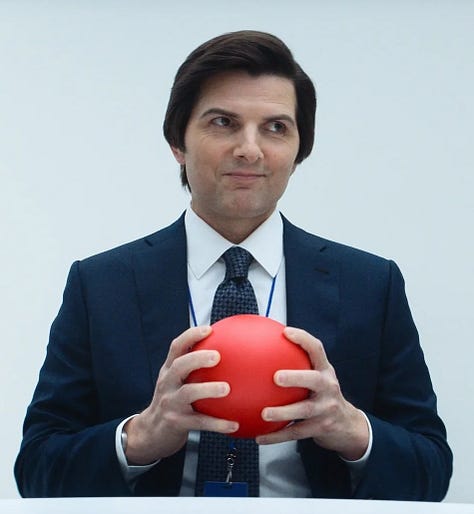

Project #5: THE HATCHERY
After getting pregnant via a futuristic surrogacy program in exchange for a reduced prison sentence, a disgraced CEO jeopardizes her freedom by probing the program’s horrific abuses.
I came up with this idea in February 2024, when the Alabama Supreme Court ruled that embryos should be considered children. What would happen, I wondered, if spare embryos created through IVF could no longer be discarded or donated to research? I envisioned the story as an hourlong drama, a cross between Orange is the New Black, The Handmaid’s Tale, and Severance.5 I drafted the pilot that spring, got meaningful feedback, and then let it sit for a year and a half.
When I finally returned to it, the script felt too close to its comps. Even if I sharpened the characters, the premise was still about forced births (Handmaid’s) of female prisoners (OITNB) in a creepy corporate environment (Severance). I toyed with removing one of those elements—changing who the surrogates were, or where they were housed—but then it started resembling Joanne Ramos’ excellent novel The Farm. I racked my brain but couldn’t find a way to make it uniquely mine. Killing ideas sucks. Killing completed drafts? Worse.
What I learned this month
Here are my takeaways regarding the above.
My bar is rising.
Instead of calling myself a flaky quitter, I prefer to see this pruning as proof my standards are higher. I’m more attuned to what feels flat or derivative, what’s worth my bandwidth in a busy season, and, most importantly, which ideas sparkle enough to keep me hooked for 9-12 months. Three weeks feels like a lifetime when you’re inside a new project, but in the grand scheme? It’s a blip.
Dead stories can come back to life.
GRANNY DEAREST has already lived as a novel pitch, a short story, an audiobook, and a half-written screenplay. (Really need to retire this one for good.) Since shelving THE WICKED TEST as a novel, I’ve wondered if it might work better on TV. And I still plan to resurrect the 2021 novel I wrote between This Might Hurt and The Hitchcock Hotel6. Someday.
Ideas are not finite.
Looking at this list of rejects, you might wonder if I’ve run out of ideas. I haven’t! In progress: two novels, one biopic feature, one sitcom pilot, and one brand-new not-sure-what-it-is-yet screen idea. The more you open yourself to stories—longreads, podcasts, gossip, art, life—the more they come. Sometimes I think about turning off the spigot because I have more ideas than time, but I never do. I love the light bulb moment too much.
Art pick
A novel that creeps in quietly and refuses to leave. On an isolated island where daughters are raised to obey and sacrifice, horror comes not from gore but from control, ritual, and inherited beliefs. Melamed nails the quiet terror of girlhood in a world that confuses compliance with virtue. It’s beautifully written and deeply unsettling, the kind of story that lingers.
Lines of the month
Vanessa dreams she is a grown woman, heavy with flesh and care. Her two limber, graceful daughters are dancing and leaping on the shore as she watches from the grass where the sand ends. Their dresses flutter chalk-white, like apple-flesh or a sun-bleached stone. A calescent sun shatters on the surface of the water, luminous shards slipping about on the tiny waves like a broken, sparkling film.
Opening lines of Gather the Daughters by Jennie Melamed
I love how the beauty of the prose shimmers with unease. The dream sequence feels tender and haunting all at once.
Until next time,
“High concept” = a project you can pitch in a few words and the premise is instantly clear. Snakes on a Plane, for example. Editors and producers love them. Writers do too—until we actually have to come up with one.
Novellas are roughly half the length of a novel.
Have you heard of Charles Bonnet Syndrome? People with severe vision loss sometimes hallucinate vivid images. The twist: they know the visions aren’t real. My grandma had it, and yes, she routinely saw three little girls that she nicknamed Tic, Tac, and Toe. How could I not try to put that in a story?
Every writer, at multiple points during a draft, believes what they’re writing is the worst piece of garbage ever produced by the human brain. This is normal. Unfortunately.
Orange Is the New Black, The Handmaid’s Tale, and Severance—three of my all-time favorites. Teeny, tiny shoes to fill.
This is me resisting the urge to spiral into a whole different essay. Hold me to it.


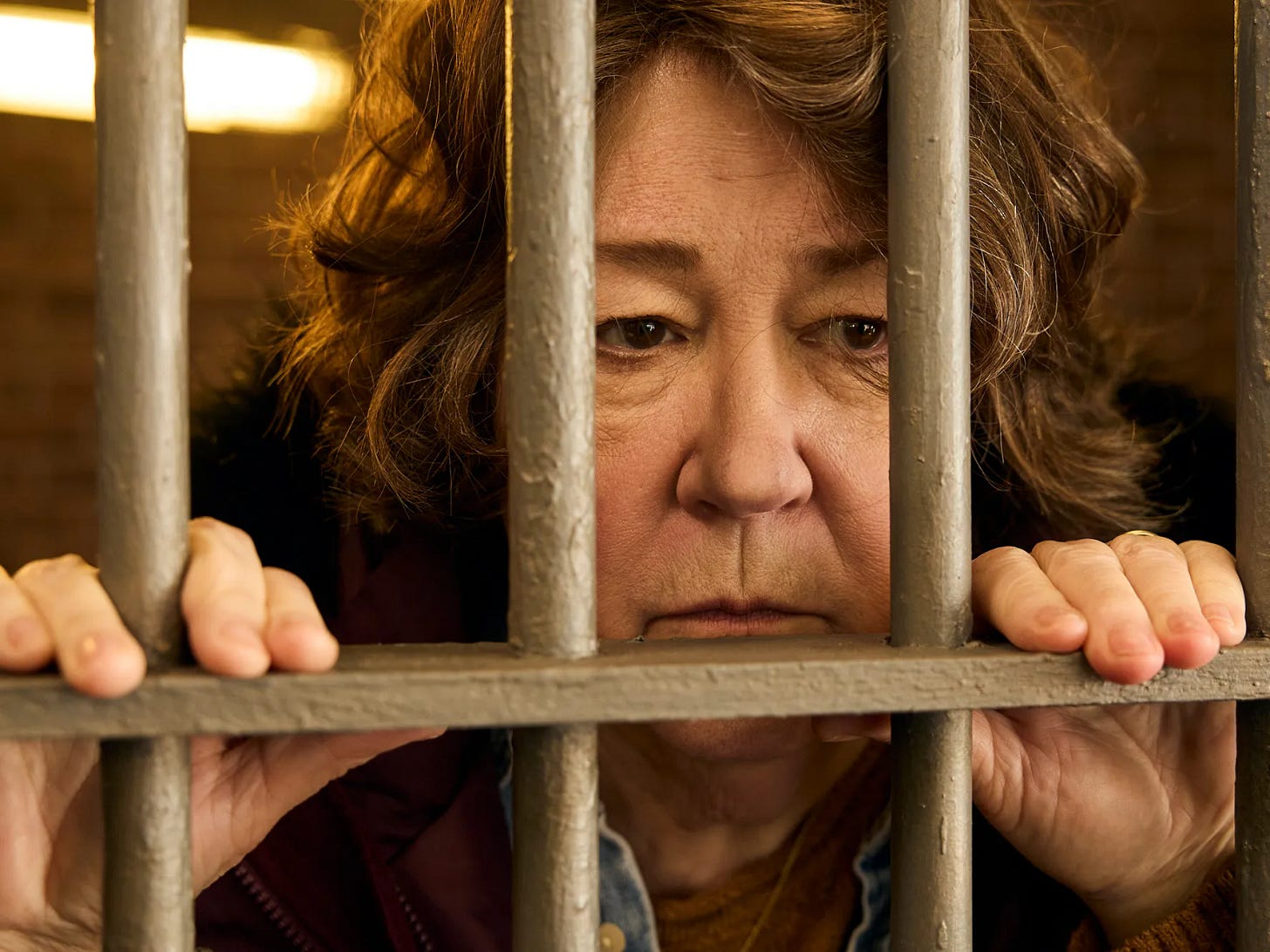
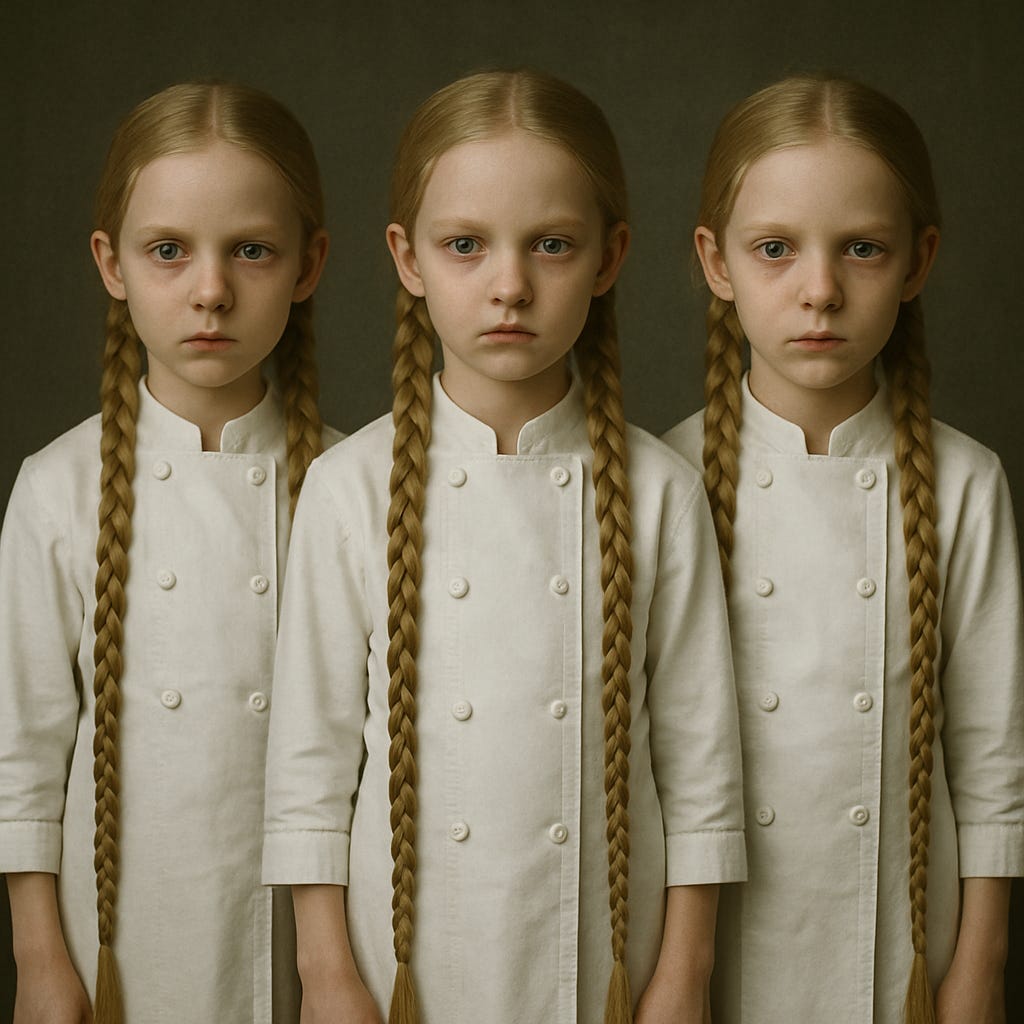
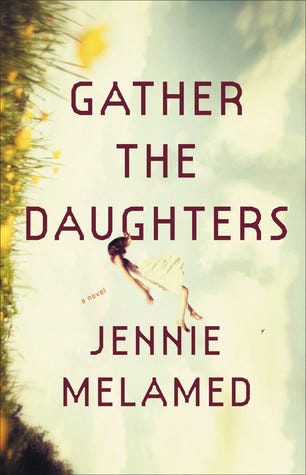

These projects all sound interesting but especially the first one. I hope you get back to them later, when it feels right. As for screenwriting, that used to interest me as well....until I actually started writing one. 🤭 In fairness, it was attempting to create one off my book (which could be more difficult) and I quickly saw why books turned into movies sometimes come out vastly different. It wouldn't be impossible but I kind of loathed the process.
I really love this and the idea that it means your standards are rising. I truly believe this to be true (whilst also wanting to read all of the above!). Can't wait for everything to come! x